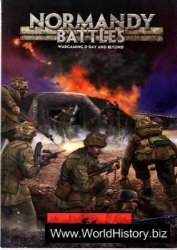While identity is internal, in two crucial ways it operates differently from the factors discussed in the previous paragraph. By its very nature, an identity cannot be completely internal because it forms in response to others. To hold an identity is to set a boundary, to separate Self from Others, to exclude as well as include. Furthermore, the very act of separating people into groups, even without any rational basis, leads to an in-group bias. Conversely, conflict usually leads the actor to see the adversary in a way that maximizes contrast with it. Thus, differences between the United States and the Soviet Union, great as they were, were often exaggerated in the United States, especially at the start of the Cold War when differentiation was most necessary. Although the totalitarian model of the USSR had significant validity and was readily accessible because of the previous experience with Nazi Germany, its widespread acceptance owed at least something to the contrast it provided to American individualism, freedom, and lack of state control.
The links between seeing others as different and having a hostile relationship with them are reciprocal. To paraphrase Charles Tilly, "identity makes conflict, and conflict makes identity." Although more attention has been paid to the influence of identity on conflict, the reverse is at least as strong. Thus, while feelings of racial superiority may underlie much imperialism, the perception of racial differences and their central importance often follows rather than precedes conflict and domination. For the United States in much of the nineteenth and twentieth centuries, when leaders or countries became targets of enmity or acquisition, they developed darker skins. Similarly, conflict can magnify, or even create, a collective sense of self. Catholics and Protestants in Northern Ireland deepened their communal ties and identity when they were attacked for being Catholic or Protestant; Bosnians had little sense of this as a meaningful category and held a relaxed view of Islam until they were driven from their homes for being Bosnian and Muslim. Identity can then come from how others define you.
In the modern era when states must claim and believe to be fighting for more than simple material advantage, the need to differentiate will entail both real and perceived changes. Thus, with the violent breakup of Yugoslavia, Serbs and Croats tried to develop distinct languages from what had been a shared Serbo-Croatian. They claimed to be purging "their" language of words introduced by the other and to be returning to the ancient and pure version but in fact often achieved the differentiation by developing new words. In the Cold War, each side shunned anything that smacked of the other. In the mid-1950s, in addition to adding the phrase "under God" to the Pledge of Allegiance, Congress replaced "E pluribus unum" as the official national motto with "in God we trust," which was also put on paper money. Arguments against increased federal spending for education received added power from the association of central control of education with Soviet indoctrination, and measures of community that smacked of compulsion rather than voluntarism had to be avoided. Along with actual changes came perceptual changes and exaggerations. The degree to which American society was in fact individualistic was exaggerated and episodes and areas that were communal or communitarian were downplayed. The role of government, including state governments, in American economic development was slighted and the quality of American democracy was exaggerated.
The conception of democracy was also at least marginally influenced by the Cold War, just as American ideas on this topic had been shaped by previous encounters with enemies. For scholars in the 1930s influenced by the Great Depression, democracy had a significant economic dimension, and substantive outcomes were included. As the Cold War developed, scholars came to define democracy solely in terms of procedures such as competitive elections and a free press. There are good intellectual reasons for this formulation and it might have been adopted in any event, but it was no accident that it provided a sharper contrast between the United States and the Soviet Union than did the older one.19




 World History
World History![Black Thursday [Illustrated Edition]](/uploads/posts/2015-05/1432470149_1431513568_003514b1_medium.jpeg)









